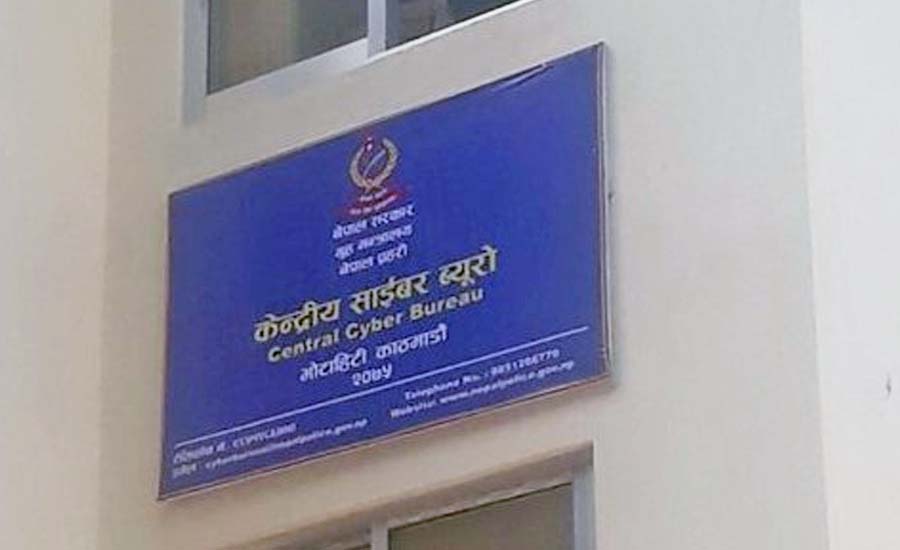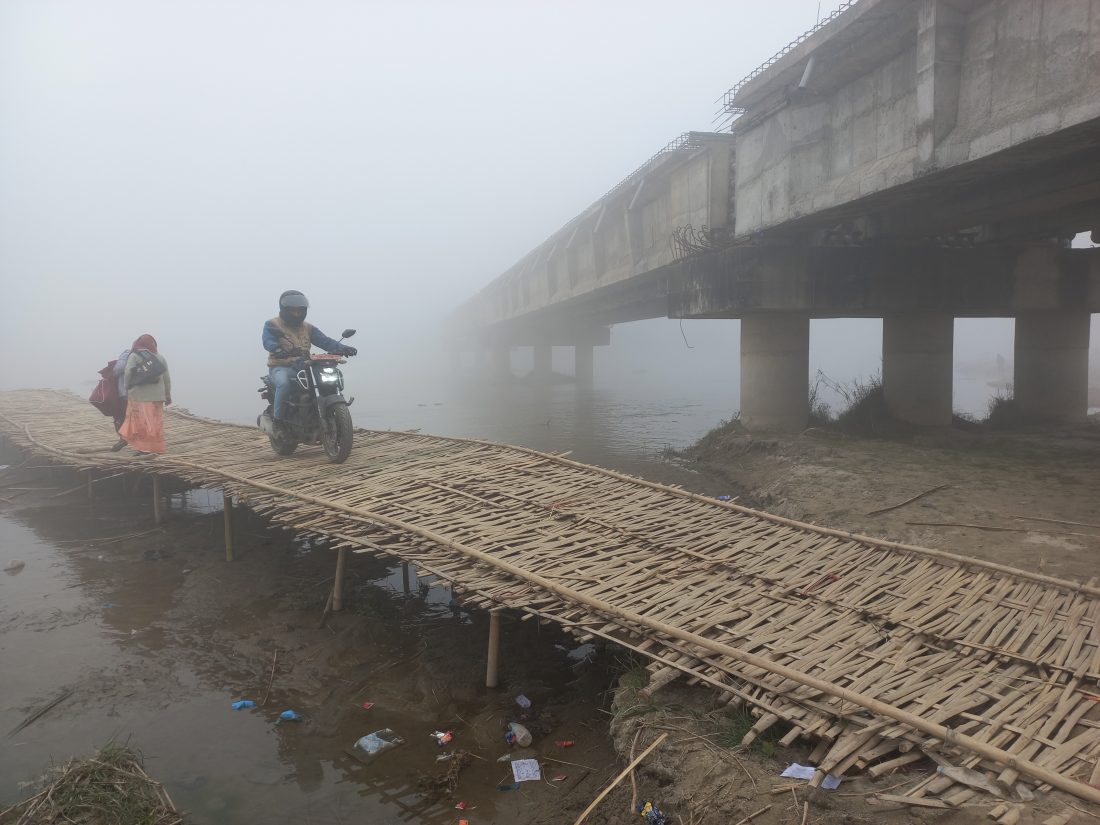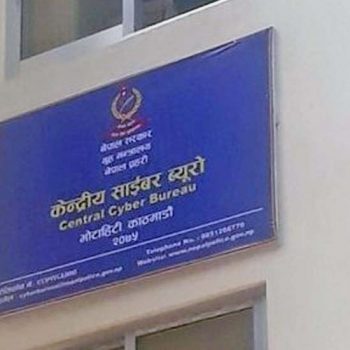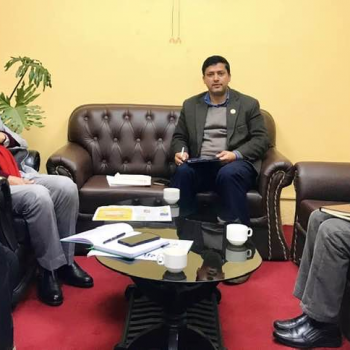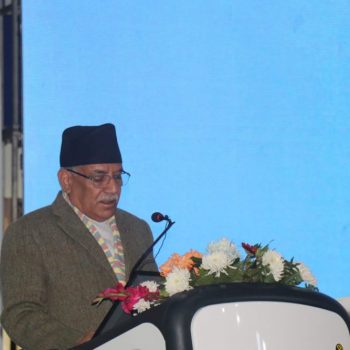Is decoloniality relevant to addressing Nepal’s plastic pollution issue?

Having spent more than half a decade in the West, one of the few luxuries I could indulge in was the well-preserved lakes, forests, mountains, and other natural landscapes. The scenic beauty of the BannauBrycheiniog mountain range in south Wales, the esoteric quiet of the Muir Woods in north San Francisco (unceded ancestral lands of the indigenous Coast Miwok people), as well as the pristine, turquoise waters of Lake Brienz in the canton of Bern in Switzerland, are memories that I cherish – memories that sharply contrast with the condition of natural landscapes at home in South Asia.
Nepal is one of the South Asian countries hardest hit by the industrial-scale degradation of the environment. Plastic, 99% of which is derived from fossil fuels globally, i.e., petrochemicals, is arguably the most conspicuous story of them all. According to the ICIMOD, Nepal produces about 2.7 tons of plastic garbage daily, which contaminates the country’s streets, sidewalks, forests, and even popular trekking routes of the Himalayan region. The entire plastics lifecycle – from extraction and refining to consumption and waste – poses significant risks to human health, such as exposure to toxic substances linked to cancer, neurological damage, and reproductive and developmental issues. Plastic waste also enters and subsequently clogs river systems, increasing the likelihood of flash floods and eventually disrupting the global ocean ecology. Indeed, plastics are carried by Nepalese rivers through the country’s Tarai area – and all the way into India’s Ganga, which flows into the Bay of Bengal. Moreover, a single plastic bag has a lifespan of at least 500 years, meaning that not only will the bags outlive us, but they will comprise one of the most enduring gifts – or curses – left to future generations of Nepalis.
Local and national authorities have not entirely neglected the issue of plastic pollution. In fact, Nepal has had various environmental successes, including pioneering community-based forest management initiatives that increased forest cover and preserved at-risk species. However, solid waste management has remained a challenge following the designation of core urban areas as municipalities in the 1950s. Since then, municipalities have been responsible for collecting and disposing of waste, but the increased waste levels from population growth and industrial expansion have overwhelmed these institutions. While partnerships with international agencies introduced new technologies, including the Germany-funded Solid Waste Management (SWM) project in Kathmandu in the 1980s, the longstanding practice of dumping waste along riverbanks continued. To reduce river pollution, landfills were constructed, causing additional issues and discontent among local residents in nearby landfill areas.
Multiple legislative efforts were also undertaken to improve conditions and engage different stakeholders; for example, the SWM National Policy in 1996 incorporated the private sector, and the private sector subsequently provided household waste collection services by charging monthly fees. Further, the SWM Act 2011 sought to enforce segregation of waste at its source (e.g., households), but the implementation has been less successful; a 2021 study by the Central Bureau of Statistics found that the potential for recyclable extraction from the waste stream is still high, but due to the lack of waste segregation at its source, this potential goeslargely untapped. Efforts to ban thin plastic bags altogether, i.e., bags with a thickness below 40 microns, have been implemented with little success as well, although the Ministry of Forests and Environment promised to strengthen the ban with sanctions and public awareness campaigns in August 2022. Today, alternative approaches to managing plastic waste, which includes unorganized dumping and open burning, only serve to exacerbate the problem: for example, in Kathmandu, on average, 48% of the waste in municipalities is landfilled (many of which are operating at near capacity), while 32% is burnt (resulting in air pollution), and 27% is openly dumped on riversides.
Nepal’s plastic waste management could improve with national and municipal reforms, including an inclusive recycling program for urban areas like the Kathmandu Metropolitan City Office. To illustrate, Nepal’s solid waste management budget prioritizes street sweeping above recycling and eco-friendly disposal. To fill in the gaps, the urban poor scavenge and recycle most waste, and the reusable products are subsequently sold to Indian manufacturers. If municipalities work with the urban poor, such as by bringing them into the formal sector or buying recyclable waste from them directly, some of the benefits would trickle down to domestic manufacturers instead. In addition, many of the hundreds of new municipalities formed since the new Nepalese constitution in 2015 do not have formal waste management systems, and a comprehensive SWM system to address this gap is required. Still, local reforms should be seen as a supplement and not an alternative to necessary structural changes in the global economy.
In fact, I believe that the prevailing discourse around plastics pollution obscures the causes behind the social and environmental challenges we face in the present moment. For example, consider the 2022 Valentine’s Day social media campaign “#DitchPlastics” launched by the World Bank. According to a blog post, the campaign’s goal was to motivate people to address the 40 million metric tons of plastic openly dumped in South Asia annually. In other words, the blog implicitly assumed that the ignorance of citizens and their purported “lack of love” for oceans and the planet was the critical factor behind the plastics pollution plaguing the region. Even an Asian Development Bank policy brief published in 2020 concluded that Asian households simply didn’t have the incentive to change their waste disposal practices due to “a lack of information about the negative health and environmental implications of ever-expanding landfill sites and open dumping.” While the observations made in the latter case are at least empirically supported, I am instinctively suspicious of arguments that attribute pollution to a purported “lack” on the part of the countries and citizens of South Asia; as I will discuss below, these arguments, which so many Western scholars and their non-Western counterparts sometimes indulge in, are inaccurate at best and racist at worst.
Scholars of political ecology and environmental justice offer an alternative perspective on plastic pollution by locating the problem at its source: the global political economy of plastic production and the economic logic driving key commercial and political actors of today, in which the World Bank, with its neoliberal ethos, upholds the status quo. Consider how, according to Canadian researcher Dr. Max Liboiron, countries often portrayed as the top marine plastic contributors, such as China, Indonesia, the Phillippines, Vietnam, and Sri Lanka, actually receive a disproportionate amount of plastic waste from higher-income regions. Given this larger context, reframing plastic pollution as “toxic colonialism” calls attention to the unfair flows of hazardous waste (including contaminated plastic recyclables) from the Global North to Global South countries, as well as the activities of international institutions which regulate, and hence constrain, the rules of engagement between countries seeking remedies to environmental problems. Indeed, from the discovery of the world’s first manufactured plastic by Birmingham-born chemist Alexander Parkers in 1862 to the post-Second World War expansion of petrochemical companies (i.e., plastic producers) and the routine use of corporate “deceit and denial” tactics to underplay the risks of plastic products, the history of plastic is a largely Euro-American story; we, citizens of the Global South, are the recipients of its legacy, resigned to bear its costs disproportionately.
Indeed, the Global North-dominated petrochemical industry responds to environmental justice concerns in two ways: first, by blaming consumers (for not recycling and littering) and “poor waste management practices” in the Global South. Second, by establishing that plastics are essential to keep consumers satisfied and sustain the ever-elusive phenomenon we call “economic growth,” producers insist on pursuing band-aid solutions such as chemical recycling (effectively incineration), green technologies, or public awareness campaigns. To what extent, however, do consumers benefit, particularly in the Global South (which, after all, constitutes the global majority), when they have no option but to buy commodities packaged and sold in plastic, which subsequently endanger the very planet on which we live?
To further illustrate the decolonial perspective, consider Fuller et al. (2022), who deployed a “waste colonialism” framework to recast plastic pollution in the Pacific Island (Te Moananui) nations (such as Samoa, Tonga, Fiji, and the Solomon Islands) as “an enactment of ongoing colonial violence to the Lands, Oceans, Air, and bodies of Te Moananui peoples.” The Moananui peoples’ livelihoods are culturally, economically, and socially tied to their oceans, and despite contributing only 1.3% to global plastic pollution, the region records the highest levels of floating plastics in the world. This waste is created by the trading ships connecting Asia and the Americas, as well as tourism, the fishing industry, marine litter, and the dumping of food and other consumer products into the region. Put differently, stakeholders in the Global North show disturbing levels of entitlement by utilizing land and water resources in the Global South (such as the Te Moananui nations) as a wasteground, thereby rendering our lives not as valuable as theirs. By shifting the analysis towards such systemic issues, Fuller et al. (2022) proposed that the responsibility for plastic waste reduction and management should lie “at the top of the waste hierarchy with plastics producers, transnational corporations, and trading partners from developed nations, rather than where it currently lies: solely with Moananui communities.”
Skeptics might argue that Nepal has not had the misfortune of being colonized by European settlers (although some suggest that the marginalization of indigenous and other communities has functioned like colonial oppression). However, the “toxic colonialism” perspective encourages us to reassess the environmental effects faced by communities in the Global South, such as in Nepal, as a continuation of colonial violence – that very same process by which the fates of our lands, natural resources, bodies, and souls remain at the discretion of others. Until colonial relations of production, which fundamentally ignore local realities and long-term global consequences, are dismantled, efforts to address plastic pollution in any meaningful capacity are doomed to fail.
Despite the grim situation, I want to leave the reader with some areas for hope and positive action. In my view, a mindset change is long overdue; although the onus of waste management lies formally at the municipal level, citizens in Nepal, as well as elsewhere in South Asia and the rest of the world, have to recognize that we must work together across national, religious, linguistic, and other identarian lines to dismantle institutions of environmental injustice. Yet, what keeps us, as global-and-geographically-rooted citizens, disengaged and resigned from acting to protect the quality of our soil, our waters, and our air, and what do we do about it? I have found some solace in the words of Gorkha-born poet Chandra Gurung, particularly in his understanding of writing as an act of social duty: “Writing can be for self-pleasure or social purposes, but what often starts as hobby gradually becomes a social duty as more responsibility comes with serious writing.” So, here I am.
To advance systemic changes, regular citizens can take various steps, such as engaging in self-education and civic action. Kenyan scholar Ngũgĩ wa Thiong’o wrote in his seminal book, Decolonising the Mind, that, “Prescription of the correct cure is dependent on a rigorous analysis of the reality.” In other words, the process of dismantling external structures that do not serve our interests is incomplete unless we work from within. Informed with the appropriate facts and understanding of material reality, we can teach ourselves and our peers to expose capitalist myths about the apparent “necessity” of plastics production and collectively advocate for global and regional legislation addressing the interlocking crises South Asians face. In this regard, the March 2022 mandate for a Global Plastic Treaty, established at the UN Environment Assembly in Nairobi, Kenya, represents a significant, though imperfect, step towards holding petrochemical industries to account. While the Treaty was divided on the issue of plastic production caps, participating states, civil society representatives, and business stakeholders recognized, for the first time, that voluntary initiatives alone cannot address the plastics crisis, and that a globally enforceable agreement covering the entire lifecycle of plastics is required. The challenge remains for us to reimagine global governance institutions so that they do not remain the exclusive domain of politicians and experts, and, if such democratic demands are denied, to forsake outmoded forms of global engagement and create our own, as equals.
Given its geographical location at the foothills of the Hindu Kush Himalaya and its significance as a source of fresh water for downstream countries, I am confident that Nepal has the potential to become a regional leader in combating plastic pollution—and we all have a stake in ensuring that it does.
(The author is the international development scholar based in Dhaka, Bangladesh)




